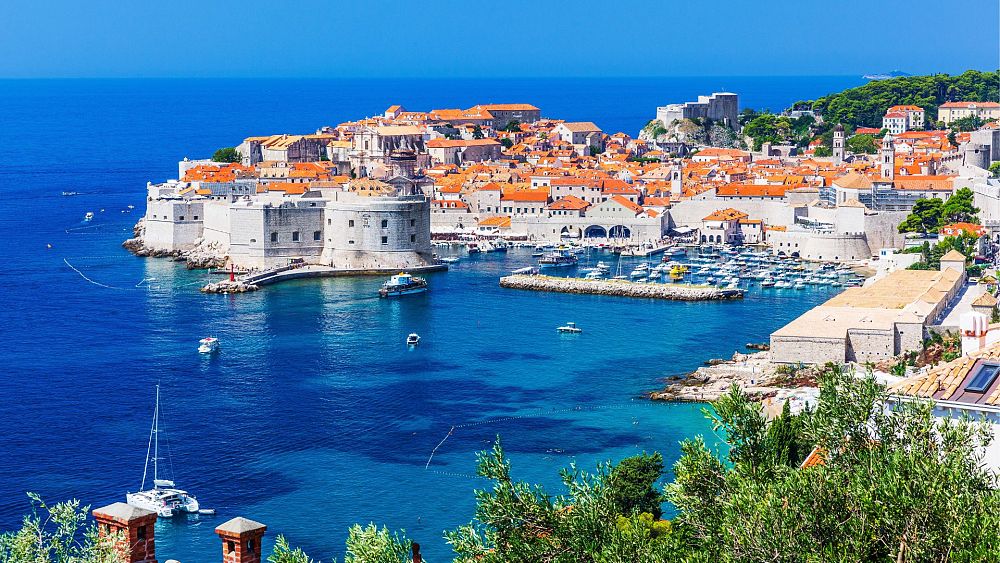Croatia has dropped its air border controls for travel to and from Schengen Area countries.
After joining Europe's passport-free travel zone at the start of this year, the country's internal land and sea borders were abolished on 1 January 2023. However, its air borders remained in place until 26 March.
Now, passengers flying between Croatia other countries within the borderless travel zone will be treated the same as the country's domestic travellers.
When did Croatia join the Schengen Area?
In December 2022, EU countries voted on whether or not to admit Croatia, Bulgaria and Romania into the so-called Schengen zone - a pact between countries to abolish border checks for those travelling between their territories.
Croatia received unanimous support from the 26 Schengen member states and joined Europe's passport-free travel zone welcomed at the start of 2023.
However, Austria blocked Romania and Bulgaria, citing a lack of preparedness. The Netherlands supported Romania's bid but opposed Bulgaria's.
"We need more time," Austrian Chancellor Karl Nehammer said at in December.
"At the moment, we have 75,000 unregistered illegal migrants in Austria - meaning they have crossed an external EU border and made it to Austria. This needs to be solved first."
Croatia also started using the euro from January 2023. Here’s what you need to know if you’re planning a trip to the country this year.
Do you need a passport to enter Croatia, Romania, and Bulgaria?
Croatia has been part of the European Union since 2013, and Romania and Bulgaria since 2007. But until now none of them have been part of the Schengen zone.
This means that a passport or identity card has been required to enter these countries, even when arriving from a country in the Schengen area.
It currently encompasses 26 countries, including 22 EU member states, and almost 420 million citizens.
From January 1, 2023, Croatia lifted its border controls with other Schengen countries. However, air borders remained in place until 26 March.
When will Romania and Bulgaria be considered for the Schengen zone?
Romania and Bulgaria have been waiting over a decade for confirmation.
In December, the Netherlands voted against Bulgaria's accession bid over what it calls unaddressed rule-of-law concerns and pending pieces of legislation to tackle corruption and organised crime.
Bulgaria, which has had a caretaker government since August, challenged these claims and said the opposition was unrelated to the Schengen criteria.
"Two member states expressed reservations but they don't have any particular concerns with relations to Schengen," Bulgarian Interior Minister Ivan Demerdzhiev told Euronews at the end of the meeting, noting his country was ready to take the "necessary steps" to convince its skeptical partners.
"The argument of Austria is that Schengen is not working and we must unite our efforts to make Schengen work as it has to, and then enlarge it with Bulgaria and Romania. Until then, Bulgaria is not responsible for the internal problems in Austria."
Ylva Johansson, European Commissioner for Home Affairs, said the Commission would remain "optimistic" and ensure the accession takes place before the end of her mandate.
"When we are united in the EU, we are so strong, we can achieve so much," Johansson told reporters. "When it comes to the accession of Romania and Bulgaria, we are not united and that makes us very weak and that makes me also sad."
What currency does Croatia use?
Before it joined the Schengen Area, Croatia used its own currency, the kuna. One Croatian kuna was worth around €0.13.
From January 2023, however, Croatia began using the euro. The country joins 19 other countries in the bloc that use the currency.
The eastern European nation is hoping this will bring greater financial security to its citizens and raise the standard of living.
It should help rein in soaring inflation, which also means travellers can expect fewer dramatic fluctuations in prices.


